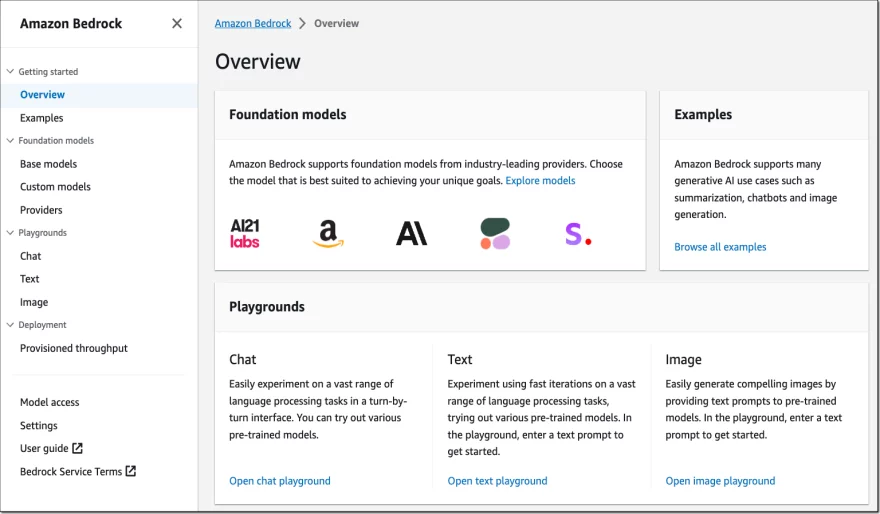Stay Ahead of the Curve
Latest AI news, expert analysis, bold opinions, and key trends — delivered to your inbox.
Amazon's Bedrock generative AI service now generally available
5 min read Amazon has officially launched Bedrock, a service that provides access to various generative AI models from Amazon and third-party partners via an API. September 29, 2023 06:13
Amazon today announced the general availability of Bedrock, its service that offers a choice of generative AI models from Amazon itself and third-party partners through an API. Bedrock, which was unveiled in early April, allows AWS customers to build apps on top of generative AI models and customize them with their proprietary data. Leveraging these models, brands and developers can also create AI “agents” that automatically execute tasks like booking travel, managing inventory and processing insurance claims. In the coming weeks, Llama 2, the open source large language model from Meta, will come to Bedrock, Amazon says — joining models from AI21 Labs, Anthropic, Cohere and Stability AI. Amazon claims Bedrock will be the first “fully managed generative AI service” to offer Llama 2, specifically the 13-billion- and 70-billion-parameter flavors. (Parameters are the parts of a model learned from historical training data and essentially define the skill of the model on a problem, such as generating text.) However, it’s worth noting that Llama 2 has been available on other cloud-hosted generative AI platforms for some time, including Google’s Vertex AI. Bedrock is in many ways comparable to Vertex AI, speaking of, which offers its own library of fine-tunable first- and third-party models on which customers can build generative AI apps. But Swami Sivasubramanian, VP of data and AI at AWS, argues that Bedrock has an advantage in that it plays nicely with existing AWS services, like AWS PrivateLink for establishing a secure connection between Bedrock and a company’s virtual private cloud. Amazon also announced the rollout of its Titan Embeddings model, a first-party model that converts text to numerical representations called embeddings to power search and personalization applications. The Titan Embeddings model supports around 25 languages and chunks of text — or whole documents — up to 8,192 tokens (equivalent to ~6,000 words) in length, on par with the latest embeddings model from OpenAI. Bedrock had a rocky start. Bloomberg reported in May that, six weeks after Amazon demoed the tech with an unusually vague presser and just one testimonial, most cloud customers still didn’t have access. With today’s announcements — and its recent, multibillion-dollar investment in AI startup Anthropic — Amazon’s clearly looking to make waves in the growing and lucrative market for generative AI. What does this mean for businesses?
Amazon's Bedrock generative AI service has the potential to revolutionize the way businesses operate. By providing access to a wide range of powerful AI models, Bedrock can help businesses to automate tasks, improve customer service, and develop new products and services. For example, a business could use Bedrock to create a chatbot that can answer customer questions and provide support 24/7. Or, a business could use Bedrock to generate personalized product recommendations for its customers. Bedrock could also be used to develop new AI-powered products and services, such as a voice-activated personal assistant or a self-driving car. Conclusion
Amazon's Bedrock generative AI service is a powerful tool that businesses of all sizes can use to improve their operations and develop new products and services. With its wide range of AI models and its integration with existing AWS services, Bedrock is a powerful platform for building the future of AI.



















 AI Agents
AI Agents